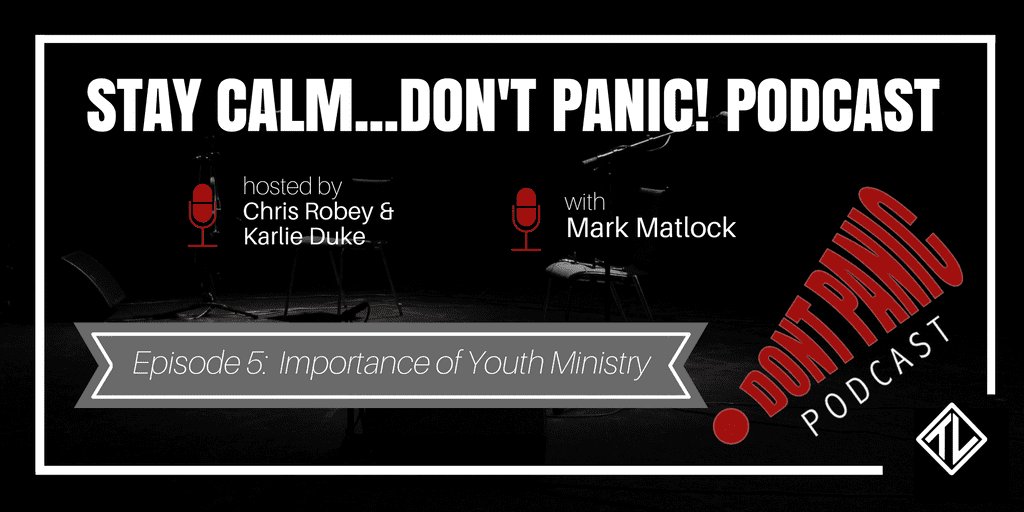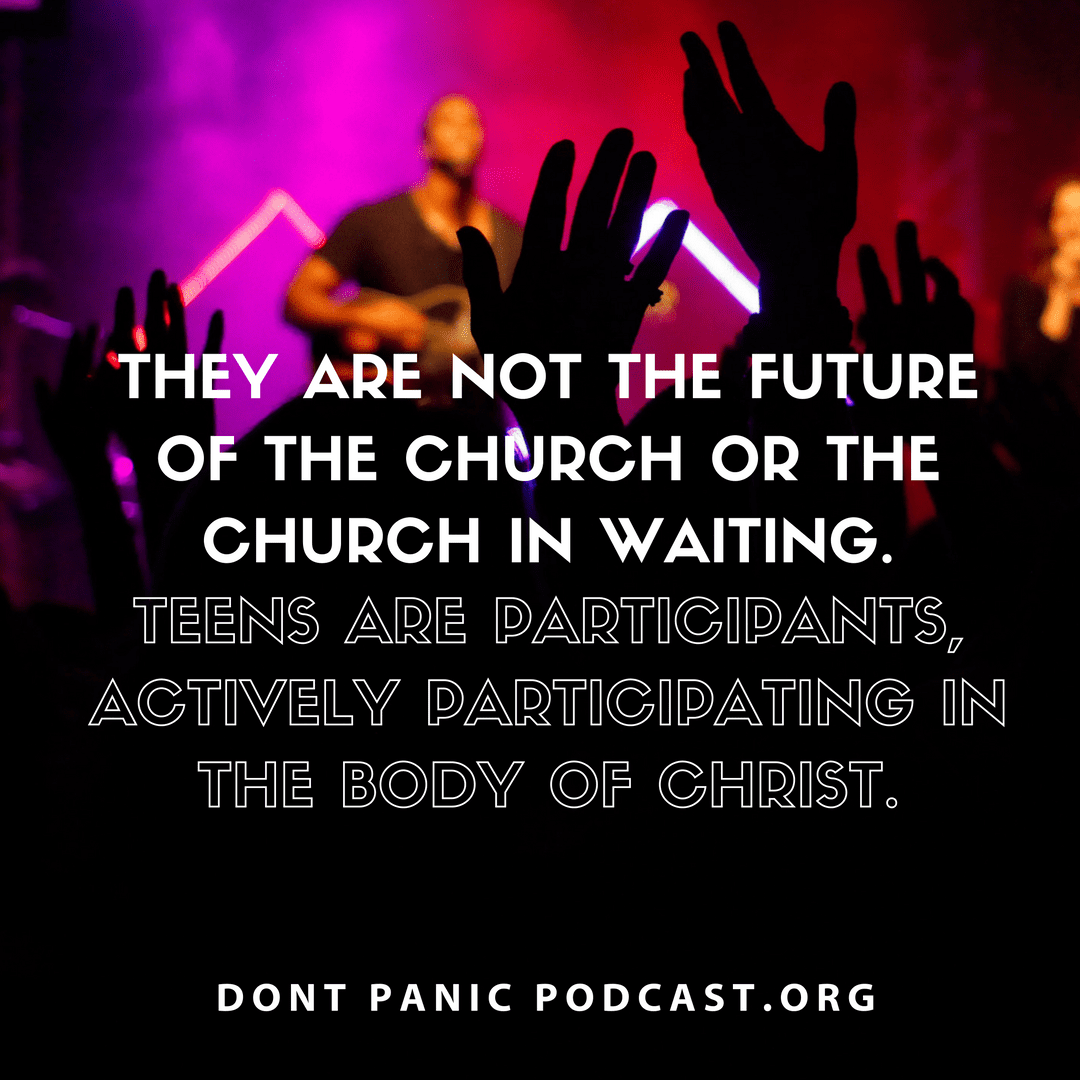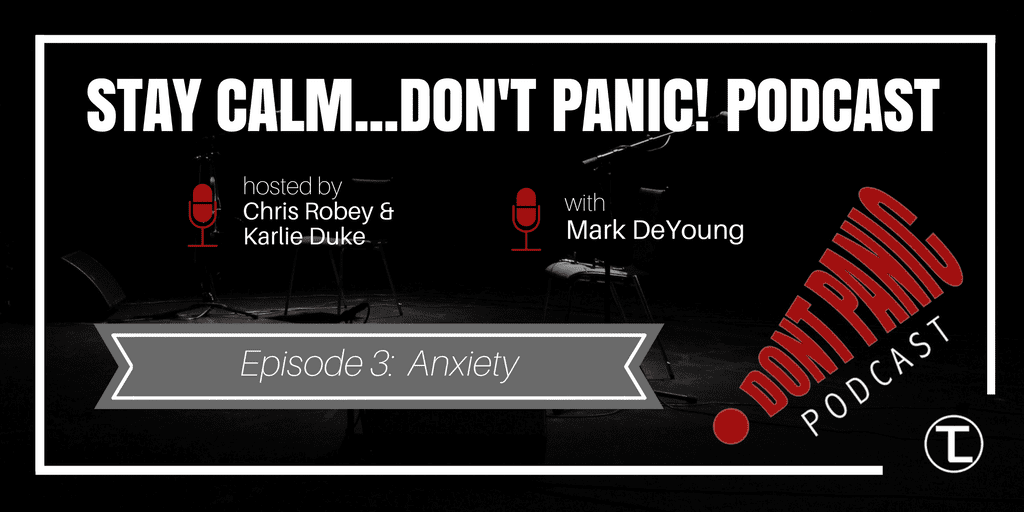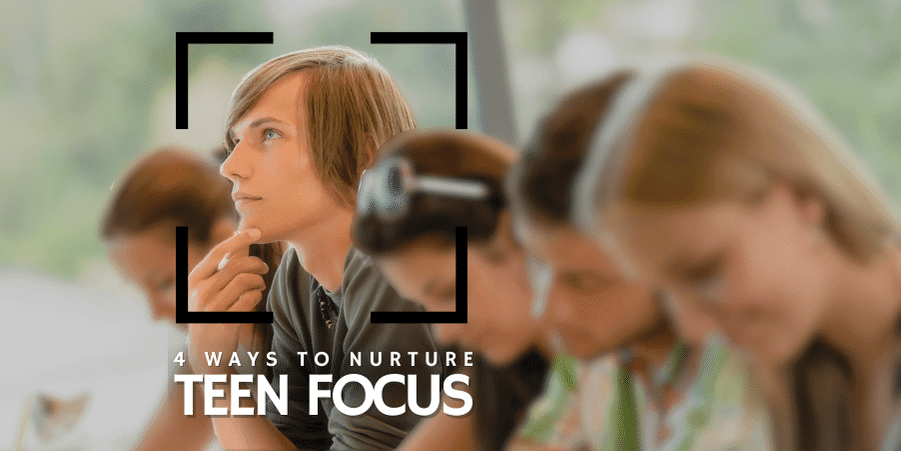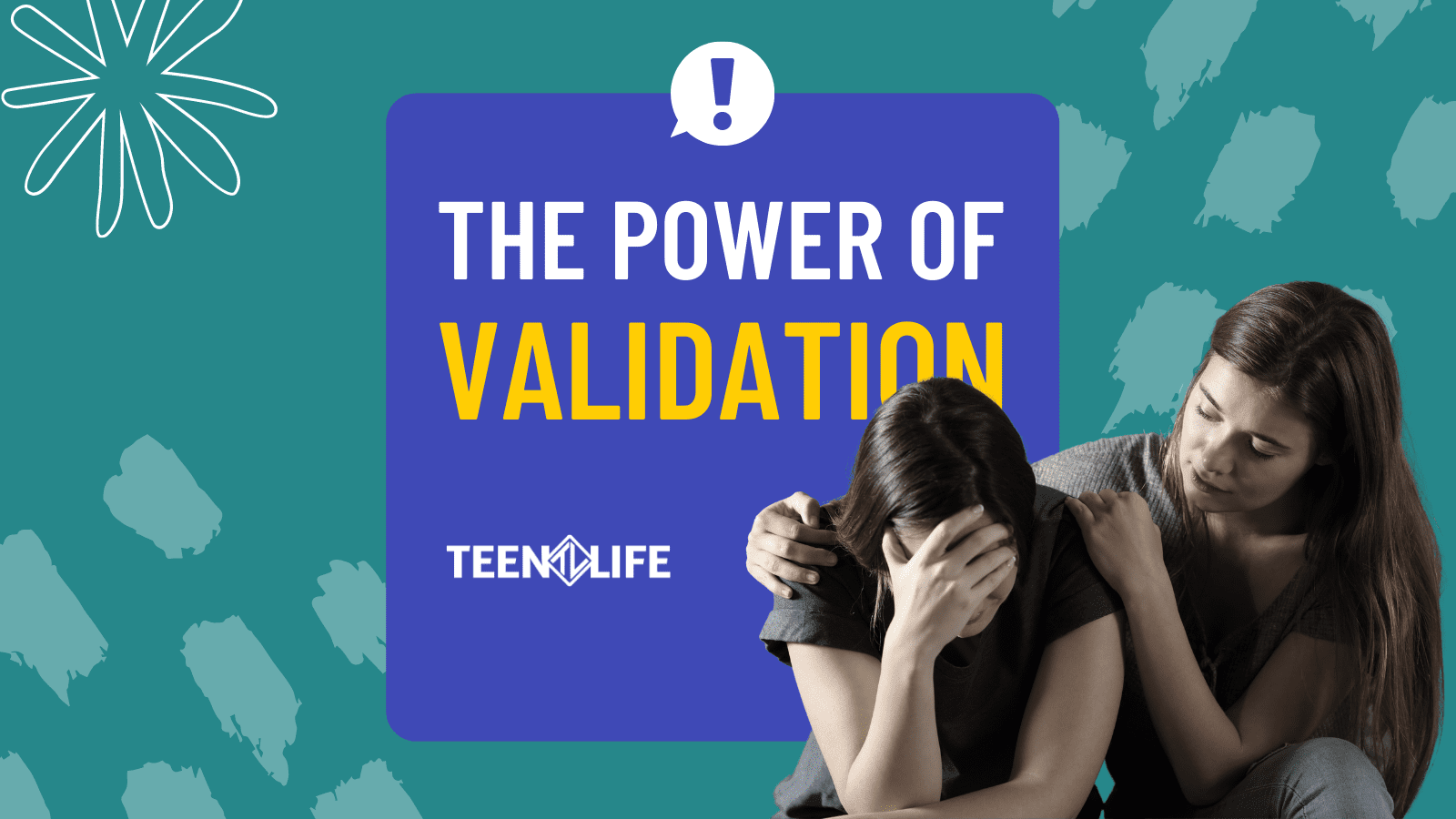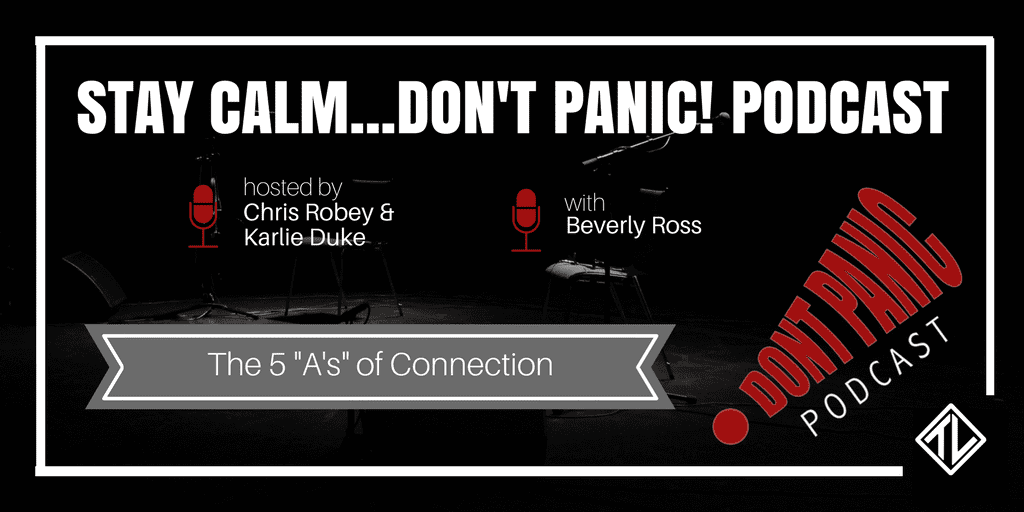
The 5 “A’s” of Connection
Podcast: Play in new window | Download
In this episode of the Stay Calm, Don’t Panic! Podcast, Chris Robey is joined by Beverly Ross to discuss how we can increase our connection with teenagers. Beverly offers five easy ways to get better at connecting with others. As an expert in the counseling realm, Beverly’s wisdom is invaluable! Let’s work on making our homes, classrooms, and churches safe places for connection.
There should be more a voice of gratitude in my home than a voice of correction.
In this episode, Beverly Ross discusses increased connection with others through…
- Attention
- Appreciation
- Affection
- Affirmation
- Acceptance
Ask yourself…
- Am I being fully present?
- Am I being more appreciative of myself so I can appreciate others?
- How can I better show gratitude and focus on the good in teenagers?
Go ask a teen…
- When are the times that you feel I am not present?
- When do you feel appreciated by me? How can I better show when I appreciate you?
In this episode, we mention or use the following resources on connecting with others.
- Wise County Christian Counseling
- Dr. Brené Brown
- Article: Teens Seek Confidants in Adults, Peers
- The Don’t Panic Podcast is now Teen Life Podcast
- Music: Under the Chandeliers
Have a question?
If you have a question about something you heard or just want to give us some feedback, please leave us a comment below. We would love to hear from you!

Karlie Duke
Communications Director

Chris Robey
Former CEO

Beverly Ross
Special Guest
Karlie Duke | Director of Communications
Karlie has always had a heart for teenagers. Through her role at Teen Life, she loves to showcase the amazing stories coming out of Support Groups, but she is especially passionate about helping adults and teenagers find connection. Karlie has a BS in Communications with a minor in Family Studies from Abilene Christian University.
Chris Robey | Former CEO
Chris has spent most of his career empowering teenagers from all backgrounds. As the former leader of Teen Life, he is passionate about helping students make good choices while also giving adults the tools they need to communicate more effectively with teens. Chris is a graduate of Midwestern State University and holds a Master’s Degree in Family Life Education from Lubbock Christian University.
Beverly Ross | Special Guest
Beverly Ross, M.A., LPC-S, is a Licensed Professional Counselor-Supervisor and the Executive Director of Wise County Christian Counseling. She is experienced in dealing with marriage and family matters, as well as individual issues such as depression, anxiety, and grief support. Beverly is a sought-after speaker and an international advocate for women’s ministries. Follow her on Twitter!










